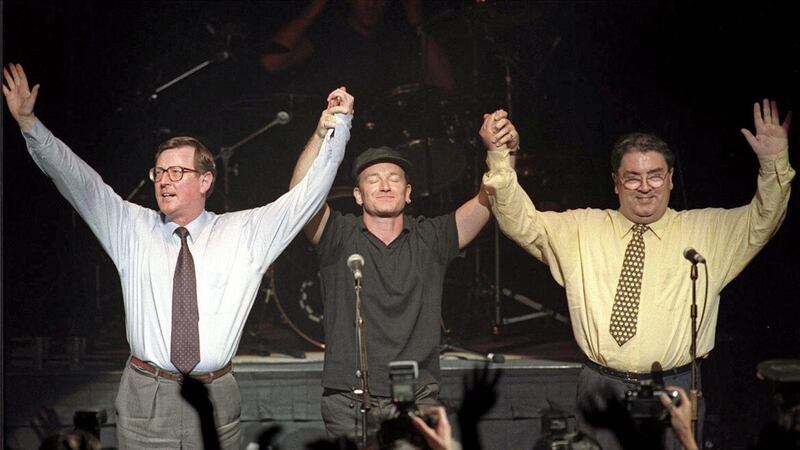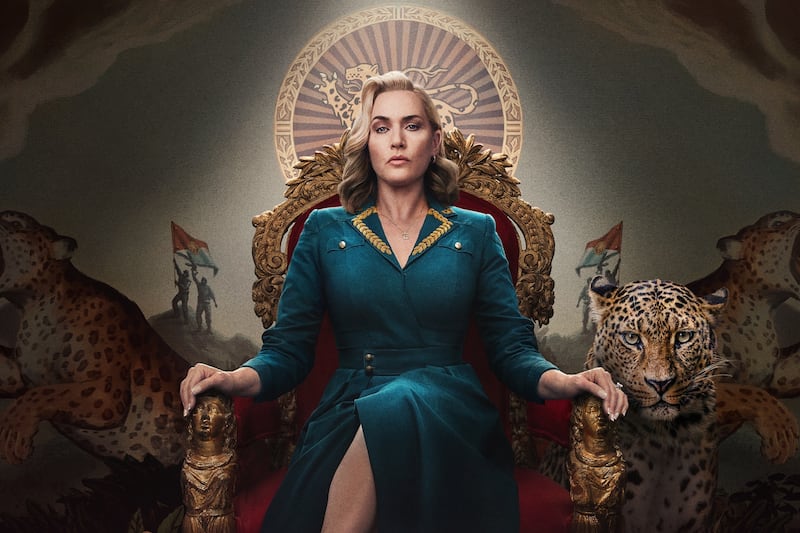A trip to the Lyric to see Owen McCafferty's play Agreement at the weekend was a journey into a past that at one time inspired a hope anyone who grew up through the Troubles could scarcely believe.
It's difficult now, from this distance, to actually convey that sense of optimism – almost euphoria – that grew in the run up to the Good Friday Agreement 25 years ago.
After thousands of needless deaths, in a conflict that seemed to have no end, to see politicians who'd spent those years tearing lumps out of each other reach an agreement to end the violence seemed beyond belief.
That it was an uneasy, imperfect peace was apparent at the time.
There were still big issues to agree, decommissioning of weapons and reform of policing among them. Many were appalled at the early release of prisoners, but most pressing was the question of dealing with the legacy of the Troubles and the victims it created. That still has not been solved.
But there was hope. If we'd come this far, surely we could take the next faltering steps?
Fortunately there was no social media then, no chance for the Twitterati to analyse and undo the necessary ambiguity. Instead there was Bono holding up the arms of the awkward architects of the peace, John Hume and David Trimble.
We kept hearing politicians quote Seamus Heaney's poem that "hope and history" could rhyme. There was the Van Morrison song, with the line "Nobody told me there'd be days like this", played over NIO ads with kids from both sides of the divide playing happily together as a new dawn beckoned.
But nobody told us there'd be days like this... 25 years on and the Assembly has been mothballed for more than a year.
This time the veto is courtesy of the DUP's never, never philosophy, attached now to a demand that the NI Protocol be scrapped to preserve the integrity of the 1800 Acts of Union.
Instead of a quarter-century of power-sharing and stability, there's been stop-start government by the two tribes who saw off their rivals in the UUP and SDLP, only to thwart any vision of political cooperation.
There's even louder talk now of changing what Mark Durkan memorably called the "ugly scaffolding" of the Agreement, which in effect, copper-fastened sectarian divides and ignored the views of the non-aligned middle.
What next? There's a chorus of voices decrying local devolution as unworkable, there are supporters of joint sovereignty with a souped-up southern voice and those who say NI has had its day, Irish unity is the only solution.
Despair is easier to deal with, it's the hope that kills you, as the saying goes. Long seen as a cliché for football fans permanently disappointed in their team's fortunes, it featured in an episode of the TV programme, Ted Lasso.
He's a soccer coach who gives his despondent team a pep talk, telling them he hated the phrase, because it was the lack of hope that is the most destructive.
What alternative is there but to hope for a better future? The Roman statesman, Cicero, had it right: "While there's life, there's hope."
****
There's no surprise that the most recent top names for babies in Northern Ireland had no Marys. When I was at school in the 1970s, there were so many that we had to have our surnames attached to differentiate us.
When I taught English in Spain, the children called me Mari-Kelly like it was just one name.
Being named after my late granny and the mother of God was no compensation when you were hankering after glamour.
The only famous Marys were in the Bunty or dodgy queens from history, though at least we got a cocktail out of one.
But while Mary is considered merely boring, it's far worse for Kevins, who've also sunk without trace. In France it was a hugely popular name in the 1990s, but now has become a byword for mockery with the name associated with an airhead in a bad-taste shirt.
Now a new film, Sauvez les Kevins, seeks to fight back against the stereotypes. Some of those taking part described being mocked for their name in job interviews, being passed over in online dating until they used a different moniker, and being the butt of jokes.
Naming babies is taken so seriously in France that parents can be banned from using names that judges believe will adversely affect the child. Thus one baby girl was saved from being called Nutella.







